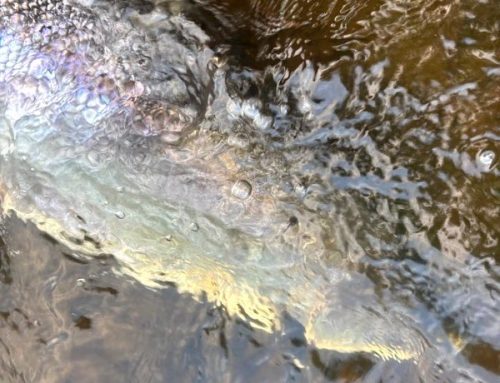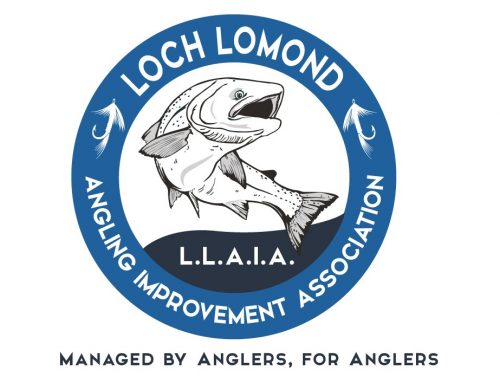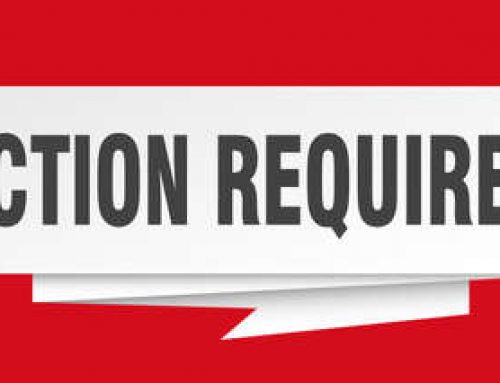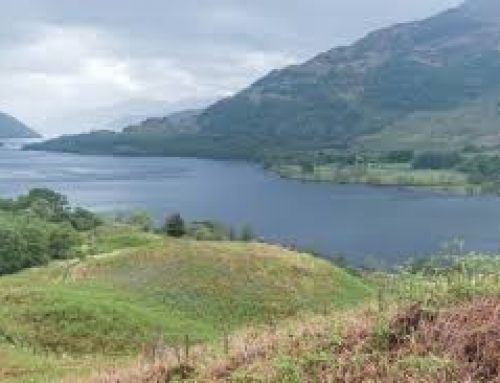Response from LLAIA relating to the consultation on proposed conservation measures to introduce a licensing system for killing wild salmon in Scotland
As everyone should now be aware the consultation period on proposed conservation measures to introduce a licensing system for killing wild salmon in Scotland formally closed on Thursday 30 April.
As promised at the our AGM in February the committee contacted all full members in relation to this consultation and asked for views on the 6 specific questions posed as well as seeking views on what we considered to be the appropriate way forward and other connected issues.
In total 104 members (23% of total) responded to the questionnaire that was sent out. We received 88 responses by email from around 220 members who had confirmed their email link and received 16 responses from the remaining 260 or so members who received a hard copy questionnaire in the post.
The response to the questions posed was as follows (please note some respondents did not answer every question so not all totals add up to 104):
| Yes | No | ||
| Question 1 | Do you agree that Scottish Ministers should introduce, for conservation reasons, a ban on killing wild salmon by all methods except under licence | 49 | 54 |
| Question 2 | Do you agree that Scottish Ministers should delay implementation of killing wild salmon except under licence until meaningful scientific evidence has been collated? | 85 | 16 |
| Question 3 | Do you agree with the committee that the proposal as it stands currently while suitable for some fisheries is not suitable for angling associations with multiple lease arrangements or large numbers of members? | 100 | 3 |
| Question 4 | Do you agree with the alternative proposal as outlined by the committee | 85 | 15 |
| Question 6 | Do you agree with the committee that Scottish Ministers should, for conservation reasons, prohibit the use of certain fishing equipment which is liable to cause greater harm to the fish? | 81 | 18 |
| Question 7 | Do you agree with the committee that the use of multi hook lures which utilise 3 hooks or more should be prohibited? | 74 | 30 |
| Question 9 | Do you agree with the Committee that Scottish Ministers should, for conservation reasons, make use of a carcass tagging scheme? | 91 | 12 |
| Question 10 | Do you agree with the Association that the recommendations contained within this review are a direct threat to the future sustainability and viability of this and other angling Associations that are dependent on multiple leasing arrangements? | 99 | 4 |
| Question 11 | Do you agree with the Association that failure to submit a catch return should result in a 3 year ban on accessing a salmon harvesting tag? | 74 | 29 |
| Question 12 | Do you agree with the Association that escaped farmed salmon should not be included in any licensing or tagging arrangements? | 98 | 5 |
Questions not directly related to the consultation were as follows:
| Question 13 | From season 2016 would you be willing to change current conservation measures so that only 3 tags are provided to members at the start of each year to be topped up by a further 2 tags on request once the first 3 have been used? | 85 | 19 |
| Question 14 | Do you agree that from season 2016 a maximum of only one salmon can be harvested by each member from the Lomond system prior to 1 July? | 67 | 35 |
| Question 15 | Do you agree with the proposal that the committee should now examine whether the Lomond system can form its own FMO? | 101 | 3 |
As well as the above responses the following questions allowed for free text answers which have been categorised as follows:
| Question 5 | If you do not agree with the alternative proposal outlined by the Committee what would you recommend instead? |
| Buy out / remove all nets 3
Control seals 3 Control of fish farms and fish eating ducks 2 Retain status quo 2 Total catch and release 1 More bailiffs 1 |
|
| Question 8 | Do you recommend the prohibition of any other fishing equipment? |
| The removal of coastal and estuary netting 6
Using only barbless hooks 4 Only using single hooks 3 Prohibiting use of treble hooks 3 No bait fishing / spinning 2 Prohibit use off gaffs 1 Prohibit use of more than 3 rods per boat 1 Prohibit use of fixed spool reels on large salmon fly rods 1 |
Given the responses above it is the intention of the Committee to consider later in the year what if any changes we might make to some our existing bye-laws in time for the 2016 season.
Finally given the massive difference between the 2 sources used to facilitate this questionnaire (email / post) we would urge all members who have as yet not registered their email address or if they have registered an email address but did not receive a link to update the secretary as soon as possible preferably by accessing our web site, click on ‘contact us’ and send an email direct to the secretary. We will do the rest.
CONSULTATION QUESTIONS – RESPONSE TEMPLATE
Q1 Do you agree with the proposal that Scottish Ministers introduce, for conservation reasons, a ban on killing wild salmon by all methods except under licence? If you disagree, please provide suggestions for alternative measures which, within the context set out in the consultation paper, would deliver the objective of a more robust regulatory framework to control killing of salmon to enable conservation objectives to be met.
| The committee of the Loch Lomond Angling Improvement Association (LLAIA), having taken account of the view of our members, are not fully convinced that the Scottish Government have justified that there should be a ban on killing wild salmon except under license. While entirely sympathetic to the principles of conservation the committee believe Scottish Ministers have failed to demonstrate that they have based this recommendation on sound science. We do not believe that the time pressure alluded to in paragraph 5 of the consultation to have the measures in place for the start of the 2016 is a genuine reason to avoid undertaking proper scientific based evidence gathering. This rush to legislate is a disgraceful state of affairs and undermines the validity of what would otherwise be a very powerful argument to introduce a more conservation based national fishery policy.
It is the opinion of the committee that Scottish Ministers must not rush this review and must provide sound and irrefutable arguments to justify the changes that they wish to impose and should they wish to introduce a ban on killing wild salmon except under license we believe that this can only be introduced once meaningful scientific evidence has been collated. If, however, licensing arrangements are introduced then in our opinion this must apply to both rod and line and net fisheries. |
Q2 Do you agree with the basic outline of how the licensing system would operate? Please provide suggestions, and rationale, if you consider it should operate in a fundamentally different way.
| No. The LLAIA Committee and the vast majority of our members who responded to our questionnaire on this matter reject the proposals as outlined by Scottish Ministers. The basic premise of the proposal is that riparian owners will be able to apply for a number of licenses to harvest wild salmon assuming that there is a sufficiency of stock. This is fine if one owns a stretch of salmon river and carefully controls access to one’s beat and knows how many fish are around. If this is the case then the proposed model relating to the licensed harvesting of wild salmon is presumably worthy of consideration.
Unfortunately for Scottish Ministers not all salmon fishing is based on such a simple and straight forward governance model. Association fisheries which strive to provide low cost salmon angling for what might once have been called ordinary working class anglers often have intricate leasing arrangements with a variety of riparian owners. What is more such Associations often have memberships which run into the hundreds of anglers, many of whom are elderly and on limited incomes. Yard for yard and mile for mile Association water accommodates far more anglers than the more exclusive stretches of river that one would normally associated with salmon angling in this country. In the case of the LLAIA we have a variety of short and long term leasing arrangements with a number of riparian owners as well as owning fishings on our own account. In total we have around 750 full and associate members and provide day ticket access to hundreds of anglers each year. We own or lease access to around 15 miles of estuary, 40 miles of river and 26 miles of Loch. Our members have agreed to the introduction of conservation measures which limits each member to killing a maximum of 5 salmon per year under a carcass tagging system. Since this scheme has been introduced, only a handful of members have ever recorded killing more than 2 fish per year. Recorded salmon catches are relatively stable in our system (including 2014) and kill rates for salmon have remained at around 100 fish a year for the last 3 years (about 30% of total recorded catch). Moreover the Association is currently undertaking proper scientific research in conjunction with the Loch Lomond Fisheries Trust to confirm anecdotal observation that salmon numbers and redds in our key spawning areas have improved over the last few years. The difficulty for the LLAIA (and for other Associations who rely on multi-lease arrangements and/or have large number of members) is that the proposed model would in all likelihood limit the number of tags issued to Riparian Owners across the system to no more than the average kill rate, which in our case would be around 100 tags at best. This of course assumes that our riparian owners will apply for their full application of tags. Unfortunately for the LLAIA 100 tags into 750 members and a large number of day ticket anglers will never go. Fewer members will lead to less income which will lead to less protection on account of having less money available to properly watch and protect the system. There is every chance that by implementing the proposed model across the board Scottish Ministers will in all likelihood be signing the death sentence of the LLAIA and similar Associations as many if not most anglers will walk away as they will perceive that they are being denied an opportunity to obtain a carcass tag. In our own particular case 114 years of history and accessible angling opportunity will be lost and the LLAIA will most likely end up a footnote in the history of Salmon Angling in Scotland. This scenario is a real possibility and totally at odds with the ethos of the Wild Fishery Review which has at its core a desire to encourage people to fish. Rather than accept the proposed change the LLAIA would like to recommend the adoption of a 2 tier licensing system which will enable a pragmatic approach to be taken that will promote conservation while protecting the future of angling associations who offer genuine entry level opportunities to those who otherwise be unable to afford fishing for salmon. Our proposals are as follows: In the case of single riparian owner fisheries the recommendation at point 2) should be adopted as it is a reasonable mechanism to attain the broad objectives of Scottish Ministers. In the case of angling association bodies who have multiple lease arrangements and /or large memberships the following proposals are recommended:
|
Q3 Do you agree that the ban on killing and associated licensing system for Atlantic Salmon should be accompanied by regulations prohibiting use of certain fishing equipment which is liable to cause greater harm to the fish? What other equipment, other than that set out at paragraph 24, do you consider should be included and for what reason (please provide evidence for your suggestions if possible)?
| Yes. In addition to the use of barbless hooks it is recommended that multi hook lures which utilise 3 hooks or more are also prohibited. We would not prohibit 2 hooked lures as this would prevent sea trout anglers from fishing traditional tandem lures when angling at night. Our members are also keen to extend the ban on killing salmon to include all estuary and costal nets as we believe the netting stations still in operation contribute nothing to the future viability of this valuable natural resource. |
Q4 Do you agree that a carcass tagging scheme be made as an integral part of the licensing system to aid compliance? If not, please provide suggestions for methods of ensuring compliance with licences and their conditions.
| Yes, such a scheme has been shown to work successfully on several Association waters and adoption at a national level is recommended by the vast majority of our members who have written to us on this matter. |
Q5 What do you consider the main impacts of the package of measures to be? Where you are commenting on the proposed ban and associated licensing scheme, please identify whether the potential impact is a result of the principle of having a more robust regulatory system in place or is more connected to the potential decisions that might be made by the licensing system. Please provide any evidence that you consider should be included within the Business and Regulatory Impact Assessments that will be completed alongside the legislation required to deliver the package of measures. The BRIA helps us to use available evidence to find proposals that best achieve the policy objectives while minimising costs and burdens. It also ensures that any impact on businesses, particularly small enterprises, is fully considered before regulations are made.
| If left unchanged these proposals may result in the collapse of many angling associations who provide cheap and at times quality fishing to people who might otherwise not be able to afford more traditional forms of salmon angling. It is ironic that the Wild Fisheries Review says it wishes to encourage people into fishing, these proposals will do the exact opposite if not altered.
It is of real concern that the rush to introduce new legislation has led to the abandonment of what many might interpret as common sense. Single riparian owner fisheries will be able to adapt to current proposals, as we have alluded to many angling associations will not. This rush to legislate has also led to Scottish Ministers ignoring basic equality considerations. The current age profile of the LLAIA is as follows: Total full members – 477, full members aged 65 or above – 163 (34% of full members). In comparison only 18% of the Scottish population according to the 2011 census was aged 65 years of age over. In addition there are 26 members of the Association who claim a disability preference and have submitted confirmation of disability. In total 189 (40%) of Association full members can be categorised as having protected characteristics under equalities legislation. Therefore with disappointment we note that a suitable equality impact assessment has not been undertaken with respect to these recommendations. The rush to legislate would have appeared to have blinded Ministers to the need to apply appropriate safe guards to protect some of the most vulnerable groups in the angling community. We would therefore urge Ministers to immediately instruct that a wide ranging equality impact assessment is undertaken, with particular emphasis on the impact on members of angling associations in line with their public sector equality duty. |
Q6 Do you have any other observations about the proposals as conservation measures to help regulate exploitation of Atlantic Salmon? In the context of the legal framework in Scotland, do you have any suggestions or options for how they might operate in practice?
| Yes, all anglers issued with tags whether in respect of the proposed licensing system or in the proposals we have submitted at section 2 should have a legal responsibility to submit a catch return by the end of the relevant calendar year. Failure to submit such a return should result in a nil award of tags for a period of at least 3 years.
Scottish Ministers must also confirm what action must be taken if anglers encounter farmed salmon which are a major threat to wild salmon stocks. It is hoped that Minister will recommend that such fish are not subject to carcass tagging arrangements and that there would be a legal requirement that all such fish should be killed on capture. |
Discounted Fishing For LLAIA Members
Members should note that from 1 May 2015 they will be eligible for a 10% discounted rate at Carron Valley Fishery for a mid-week session (Monday – Friday).
Carron Valley fishery is located at the top of the Endrick catchment about 5 miles east of Fintry. It is stocked with rainbows as well as holding an impressive head of wild browns and powan. Fishing is from the bank or from boat. The Committee are delighted to highlight this water and would ask that members show their membership cards when claiming the discounted rate.
See www.carronvalley.com
LLAIA Committee.




